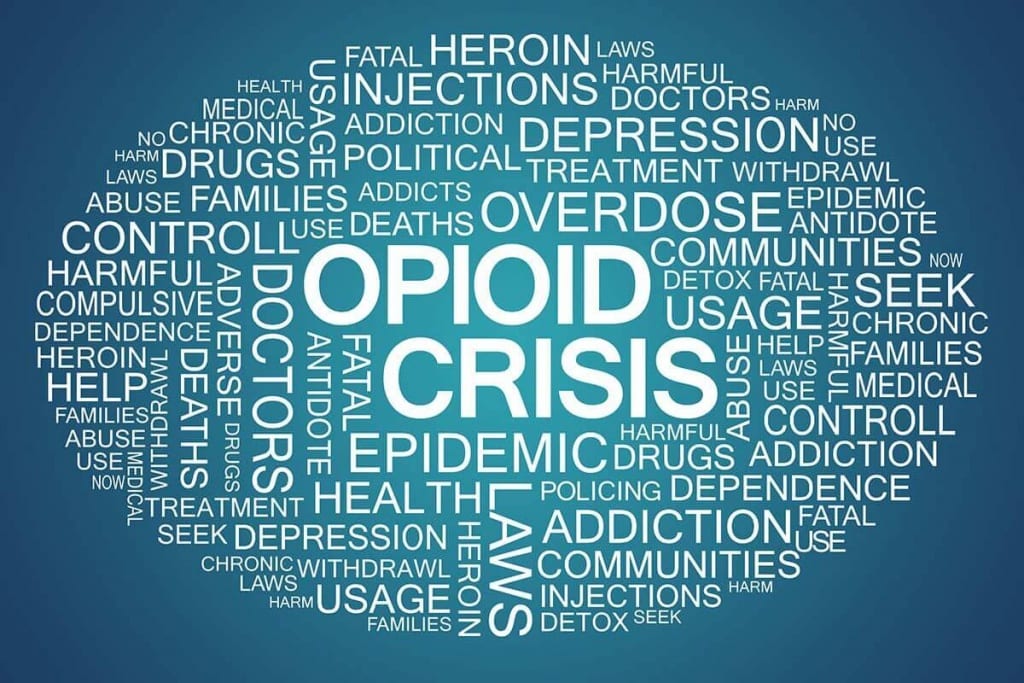Opioids are a class of drugs commonly prescribed to treat moderate to severe acute pain or to induce surgical anesthesia. By attaching to receptors in the brain and spinal cord, opioids not only reduce pain signals, they may also produce relaxed, euphoric effects. Because of these effects, many people misuse opioids or use them recreationally. When opioids are taken as prescribed, they can be safe and effective, but misuse or illegal use poses a high risk for addiction.
Because opioids interact with the pleasure and reward center of the brain, they trigger heightened feelings of well-being and euphoria. Although these feelings can be triggered naturally by experiencing something that promotes pleasure, opioids deliver the feelings at a much more intense level, causing people to want to re-experience the same level of intensity. As use continues, the brain adapts to the dose, resulting in an increasingly higher dose needed to achieve the desired effect, which can lead to addiction.
According to the National Institute on Drug Abuse, opioids “include the illegal drug heroin, synthetic opioids such as fentanyl, and pain relievers available legally by prescription, such as oxycodone (OxyContin®), hydrocodone (Vicodin®), codeine, morphine, and many others.”
Despite their high risk for addiction and overdose, opioids remain the most commonly prescribed class of medications in the U.S. In 2019, the National Institutes of Health (NIH) published revised numbers about opioid prescriptions, warning, “every day, more than 130 (up from 115) people in the United States die after overdosing on opioids.” NIH has also previously stated that approximately 21-29% of patients prescribed opioids misuse them, and that about 80% of heroin users began their addiction via opioid abuse.
Obtaining opioids without a prescription can be even more dangerous than misusing prescribed drugs. Drugs like heroin or illegal fentanyl are often laced with other powerful narcotics and other contaminants, which can result in overdose and death. Even legally prescribed fentanyl can have deadly results. Dr. Linda Richter, director of policy research and analysis for the National Center on Addiction and Substance Abuse, told WebMD, “deadly synthetic opioids like fentanyl are now the main drivers of drug overdose deaths in the United States.”
Warning signs of opioid abuse
The Mayo Clinic notes that “studies suggest that up to one-third of people who take opioids for chronic pain misuse them, and more than 10 percent become addicted over time.” Although opioid addiction can be difficult to detect in the early stages, if your instincts are telling you a loved one may be misusing opioids, it’s important to follow up. Perhaps you’ve noticed mood, behavioral or other changes that worry you. Learn the warning signs for addiction, and what actions you can take.
Signs of opioid abuse may manifest physically, mentally, and behaviorally. Common behavioral signs include:
- Inability to control use/intense cravings
- Isolation from family, friends, co-workers
- Taking drug illegally or not as prescribed (including taking a higher or more frequent dose)
- Taking the drug “just in case,” even when not in pain
- Stealing or forging prescriptions
- Requesting opioids from several different doctors, known as “doctor shopping”
- Requesting early refills
- Saying prescription was lost and requesting a new one
- Asking to borrow drugs from others
- Making poor decisions or engaging in risky behavior like unprotected sex or drug injection
Physical and mental warning signs of opioid addiction may include:
- Mood and energy swings from extreme highs to extreme lows
- Drowsiness
- Disrupted sleep patterns
- Weight loss
- Recurring flu-like symptoms
Factors that may increase risk of opioid abuse
The Mayo Clinic states that certain factors may place a person at increased risk of opioid abuse. Those at higher risk include those who:
- Are teens through early 20s
- Are unemployed or living in poverty
- Are living in stressful environment
- Struggle with anxiety or depression
- Have a personal or family history of substance abuse
- Have a history of problems with work, school, family, friends
- Have received a DUI or have had other legal problems
- Are in regular contact with people or places where drug use is happening
- Engage in risky behavior
- Are heavy tobacco users
While the above factors may place an individual at increased risk for addiction, it can certainly happen at any age, gender, ethnicity or socio-economic level.
Signs of overdose
An opioid overdose is a medical emergency. A person with the following signs may be experiencing an overdose: extremely slow breathing or heart rate, clammy to the touch, lips or skin is blue-tinged, making gurgling sounds and/or unresponsive. If any or all of these signs are present, call 911.
Most opioid overdose deaths happen when breathing becomes so slow and shallow that too little oxygen reaches the brain. This condition is called hypoxia, which can lead to coma, brain damage and death. Rapid intervention can save lives. If administered in time, a drug called naloxone (generic form Narcan) can reverse the effects of an opioid overdose.
Narcan is so effective that on April 19, 2019 the Food and Drug Administration (FDA) gave approval for it to be administered by those without medical training.
Turning Point of Tampa’s goal is to always provide a safe environment and a solid foundation in 12-Step recovery, in tandem with quality individual therapy and groups. We have been offering Licensed Residential Treatment for Substance Abuse, Eating Disorders and Dual Diagnosis in Tampa since 1987.



